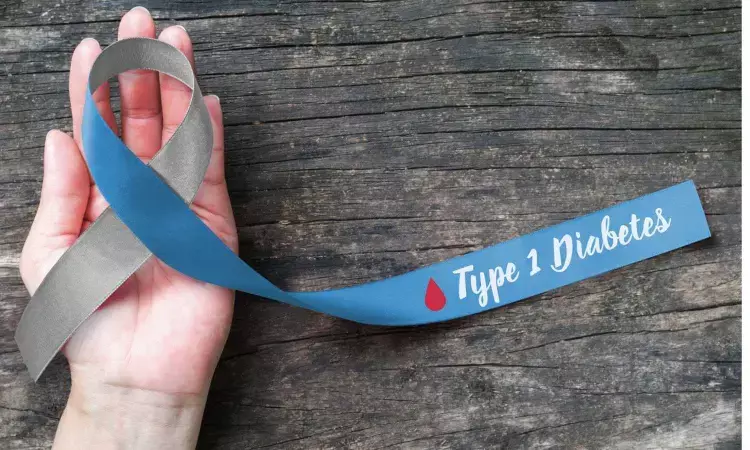- Home
- Medical news & Guidelines
- Anesthesiology
- Cardiology and CTVS
- Critical Care
- Dentistry
- Dermatology
- Diabetes and Endocrinology
- ENT
- Gastroenterology
- Medicine
- Nephrology
- Neurology
- Obstretics-Gynaecology
- Oncology
- Ophthalmology
- Orthopaedics
- Pediatrics-Neonatology
- Psychiatry
- Pulmonology
- Radiology
- Surgery
- Urology
- Laboratory Medicine
- Diet
- Nursing
- Paramedical
- Physiotherapy
- Health news
- Fact Check
- Bone Health Fact Check
- Brain Health Fact Check
- Cancer Related Fact Check
- Child Care Fact Check
- Dental and oral health fact check
- Diabetes and metabolic health fact check
- Diet and Nutrition Fact Check
- Eye and ENT Care Fact Check
- Fitness fact check
- Gut health fact check
- Heart health fact check
- Kidney health fact check
- Medical education fact check
- Men's health fact check
- Respiratory fact check
- Skin and hair care fact check
- Vaccine and Immunization fact check
- Women's health fact check
- AYUSH
- State News
- Andaman and Nicobar Islands
- Andhra Pradesh
- Arunachal Pradesh
- Assam
- Bihar
- Chandigarh
- Chattisgarh
- Dadra and Nagar Haveli
- Daman and Diu
- Delhi
- Goa
- Gujarat
- Haryana
- Himachal Pradesh
- Jammu & Kashmir
- Jharkhand
- Karnataka
- Kerala
- Ladakh
- Lakshadweep
- Madhya Pradesh
- Maharashtra
- Manipur
- Meghalaya
- Mizoram
- Nagaland
- Odisha
- Puducherry
- Punjab
- Rajasthan
- Sikkim
- Tamil Nadu
- Telangana
- Tripura
- Uttar Pradesh
- Uttrakhand
- West Bengal
- Medical Education
- Industry
Early birds have better sleep quality and emotional well-being in T1 Diabetes

Recent research in the chronotypes of people with type 1 diabetes found that the morning chronotype has better sleep quality and emotional well-being than those with evening and intermediate chronotypes. The study results were published in the journal Sleep Science.
T1 diabetes which is common in childhood and adolescence but can occur at any age. The circadian rhythm which is a master clock controlling all the biological processes and functions is influenced by environmental cues, among which the most important being the light-dark cycle. Any disturbance in this rhythm can lead to many diseases and also diabetes. Sleep parameters, sleep disorders, chronotypes, and mood variables have been largely studied in previous studies in patients with type 2 Diabetes Mellitus (T2DM) but not many were done in T1 DM. Hence researchers conducted an observational, cross-sectional study to analyze chronotypes, sleep, and mood variables and to describe their association with some metabolic variables in T1 diabetics.
Adults with T1DM were evaluated by various questionnaires for chronotypes by the Morningness-Eveningness Questionnaires, sleep quality by Pittsburgh Sleep Quality Index (PSQI), excessive daytime sleepiness by Epworth Sleepiness Scale (ESS), symptoms of depression by Patient Health Questionnaire - 9 (PHQ-9) and emotional well-being by Emotional Well Being Index (IWHO-5). A few metabolic variables were included.
What was found:
- Ninety-five patients with a mean age of 38 years (range 18–70) and an average body mass index (BMI) of 24.4 Kg/m2 participated in the study (52.6% were males).
- Among the total, The Intermediate chronotype was predominant with 56 of the participants (55%).
- Poor quality of sleep was found in 67.4% of the sample, excessive daytime sleepiness in 14.7%, depressive symptoms in 6.3% by PHQ9, and low perception of well-being by IWHO-5 in 16.8%.
- When compared with the other chronotypes evening chronotype scored worse in sleep quality (p = 0.05) and had lower well-being (p = 0.03).
- Higher MEQ values (morningness) correlated with lower height (p = 0.043), lower values in the PSQI (p = 0.021); and higher values in emotional well-being (p = 0.040).
Thus, the morning chronotype had a significant correlation with better sleep quality and higher scores in emotional well-being.
Key takeaways:
- The intermediate chronotype was the most common in T1DM.
- Two-thirds reported poor sleep quality and 14.7% indicated excessive daytime drowsiness. 6.3% had a possible diagnosis of a depressive condition, and 16.8% had a poor self-perception of emotional well-being.
- The morning chronotype was associated with improved sleep quality and higher emotional well-being ratings.
Further reading: Valiensi SM, Folgueira AL, Diez JJ, et al. Is Being a Lark Healthier for Patients with Type 1 Diabetes Mellitus? Sleep Sci. 2023;16(1):75-83. Published 2023 Apr 19. doi: 10.1055/s-0043-1767749
BDS, MDS
Dr.Niharika Harsha B (BDS,MDS) completed her BDS from Govt Dental College, Hyderabad and MDS from Dr.NTR University of health sciences(Now Kaloji Rao University). She has 4 years of private dental practice and worked for 2 years as Consultant Oral Radiologist at a Dental Imaging Centre in Hyderabad. She worked as Research Assistant and scientific writer in the development of Oral Anti cancer screening device with her seniors. She has a deep intriguing wish in writing highly engaging, captivating and informative medical content for a wider audience. She can be contacted at editorial@medicaldialogues.in.
Dr Kamal Kant Kohli-MBBS, DTCD- a chest specialist with more than 30 years of practice and a flair for writing clinical articles, Dr Kamal Kant Kohli joined Medical Dialogues as a Chief Editor of Medical News. Besides writing articles, as an editor, he proofreads and verifies all the medical content published on Medical Dialogues including those coming from journals, studies,medical conferences,guidelines etc. Email: drkohli@medicaldialogues.in. Contact no. 011-43720751



